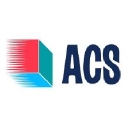Enterprise Data Architect – Healthcare & Cloud Analytics

ACS Consultancy Services
ACS Consultancy Services is seeking an Enterprise Data Architect specializing in Healthcare & Cloud Analytics to lead data architecture initiatives. This remote position requires expertise in data modeling, cloud platforms, and healthcare data standards.
Job description
Requirements
• Experience in data architecture, data modeling, and data warehousing
• Experience with business intelligence and big data solutions
• Experience with healthcare data standards like FHIR, CCDA, and HL-7
• Proven experience in leading and managing advanced analytics projects
• Experience with cloud platforms such as Azure, AWS, or Google Cloud Platform
• Experience in developing, deploying, and managing applications and data storage on these platforms
• Strong knowledge of data architecture principles and best practices
• Proficiency in SQL and other database technologies
• Knowledge of advanced analytics tools and strategies
• Strong communication skills, with the ability to explain complex technical concepts to a non-technical audience
• Ability to lead teams and manage complex projects
• Proficiency in cloud infrastructure management, including cloud-based data storage options, cloud security considerations, and deployment best practices
• Develop and maintain enterprise data models, data warehouses, and data lakes to support analytics and reporting
• Evaluate and integrate emerging technologies such as AI, machine learning, and big data analytics in healthcare
• Work closely with data engineers, developers, and analysts to ensure seamless data accessibility and usability
• Experience with ETL tools, data integration platforms, and APIs
• Experience with EHR integration, APIs, and real-time streaming
• Experience in architecting and designing ETL pipelines using Informatica tools
• Design and model data for cloud-based data architecture solutions using Snowflake as the primary data platform

ACS Consultancy Services
ACS Consultancy Services is seeking an Enterprise Data Architect specializing in Healthcare & Cloud Analytics to lead data architecture initiatives. This remote position requires expertise in data modeling, cloud platforms, and healthcare data standards.